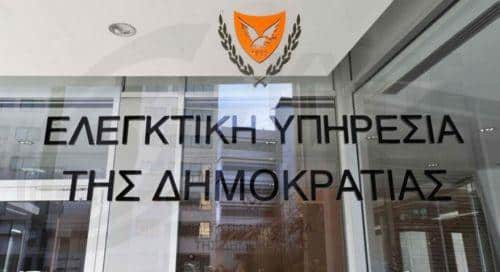Discussions were held at the House institutions committee on Wednesday regarding plans to create a registry of all public contracts.
The bill has been put forward by Green Party leader Stavros Papadouris and Dipa MP Marinos Mousiouttas, with Papadouris saying that “seeing that several projects are not completed, which concern public contracts, we decided that it is time … to create a registry”.
He said the registry will provide two purposes: to help the branch of government awarding any given contract to access the history of any company which may apply to be awarded a public contract, and for the public to be able to see which company has undertaken any given project and what its history is.
“During the discussions we had, no one disagreed. Neither the legal service, nor the accountant-general’s office, nor the tenders review authority, nor non-governmental organisations, nor the audit office. They all agree on the creation of this registry,” he said.
He added that they all also “understand how it will help both in terms of transparency and in terms of the advice it will give” to those awarding contracts, “both in terms of transparency and in terms of the advice it will give”.
He then said suggestions have been made for minor changes to the bill, and that MPs have agreed to them.
“The goal is common: to cooperate to serve the issue of transparency and, if possible, our goal is to ensure that all guarantees are given to contracting authorities, so that they award projects to the right companies, which have good track records, within the terms of reference of each tender,” he said.
The bill’s discussion comes after an audit office report found that over 40 per cent of money spent on public works had gone to just three companies – Cyfield, the Iacovou Brothers, and Cybarco – which between them were awarded more than €1 billion worth of public works contracts between 2015 and last year.
Of that figure, Cyfield undertook 157 projects, amounting to over €560 million, while the Iacovou Brothers took 84 projects, amounting to over €320m, and Cybarco undertook 40 projects, amounting to over €140m.
“These figures indicate increasing concentration of the market for major projects to specific contractors,” the report said.
The most expensive project awarded during the audit office’s reporting period was for the construction of a new motorway to link Paphos with Polis Chrysochous.
The contract was awarded to Greek contractor Intrakat, and was valued at just shy of €73m plus value added tax.
However, the government terminated its contract with Intrakat last year.
The public works department saying of the termination that “intensive efforts were made to overcome any obstacles, problems, and respond to the contractor’s requirements”, but that Intrakat’s “demand for additional costs and time to complete the project” were deemed to be “extremely problematic and excessive”.
Of Intrakat’s demands for more funding and time to complete the project, it said that in April last year, “the contractor’s demands amounted to €30m and a 34-month extension”, but that by October, this had risen to €34m and a 59-month extension.
“Considering that these demands were made with the project only 21.1 per cent complete, it can be reasonably concluded that there would be additional demands and extensions before the project was complete,” it said.
The government has now announced a new tender for the road, which is now expected to cost €90.2m plus VAT.






Click here to change your cookie preferences